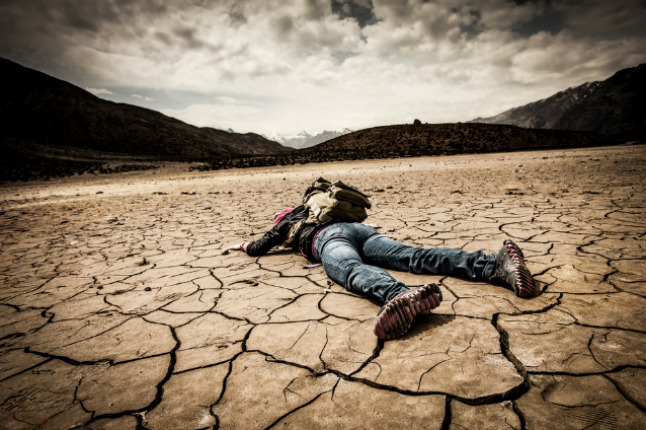Survival Myths That Could Actually Kill You
You might like to think that you have what it takes to survive even the most overwhelming odds. Even if you don't know all that much in the area of survival skills, you'd make it through, right?[slideshow:1350]
Snake bites, life-threatening dehydration and being forced to make your own fire for survival—these things don't only happen in the movies.
Unfortunately, these are real risks that come with outdoor adventure and your best shot at making it through lies in preparation and education. By education, we mean accurate information from experts and survival schools—not reality TV.
"I've worked as a consultant on several reality shows and these shows are heavily-scripted," said Tony Nester, an expert on desert survival and head of Ancient Pathways Survival School. "On one program, there was a crew of 12 people accompanying us, including two staff whose sole job was to drag around coolers filled with double-shot espressos and sandwiches while filming scenes of the host living off the land. There's nothing romantic or fun about real survival—it's only adventure in retrospect."
Nester and other experts also like to point out that survival, by definition, is short-term. "Survival" means living long enough to be rescued.
To help dispel some of the more common myths, we spoke to Nester and other experts on the subject. Those intimately familiar with the outdoors helped shed some light on what you should do, what you shouldn't do and what survival really means.
MYTH: You need to find food right away
"One of the biggest survival myths is that you need to invest energy and take risks in order to immediately find food," said Ras Jason Vaughan, a veteran thru-hiker, ultra-runner and adventurer who is better known as UltraPedestrian Ras. "Shows on television depict survivalists eating raw worms and chewing live snakes to bits within a few hours of being dropped off by a helicopter." That's just not how real life survival works.
REALITY: Something else will get you first
"In reality, you can survive for weeks on just your body's fat stores, as long as you have water to drink. Conserving energy, avoiding injury, and sourcing a supply of water are key to surviving," said Ras. "Hunting and trapping prey are hit and miss activities which often produce nothing and simply end up expending energy and risking injury or illness. It's extremely rare for someone to die of starvation in a survival situation. Injury, illness, poisoning and exposure are much [more] likely to result in death. By definition, 'surviving' a situation is short-term, and in the short term a person can be fueled by their fat reserves."
14 Other Survival Myths that Could Actually Kill You
Editor's Note: Additional writing and reporting by Mark Lebetkin.
